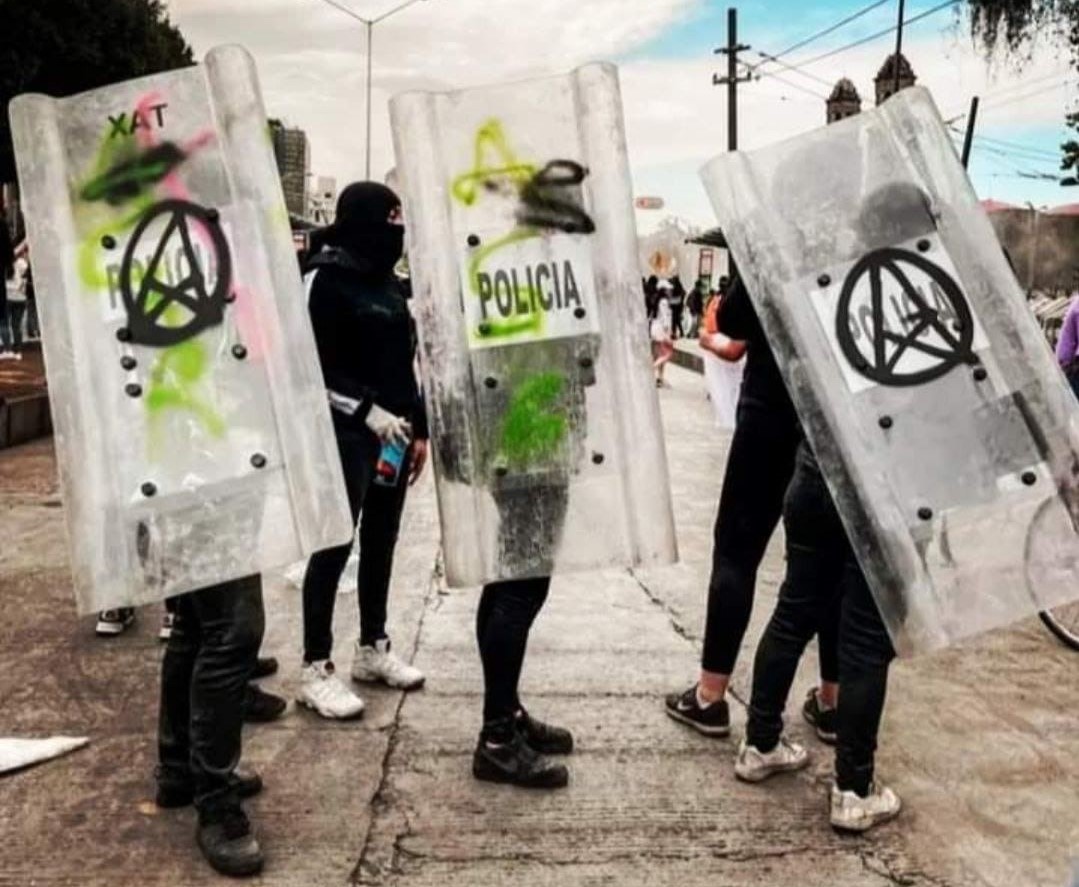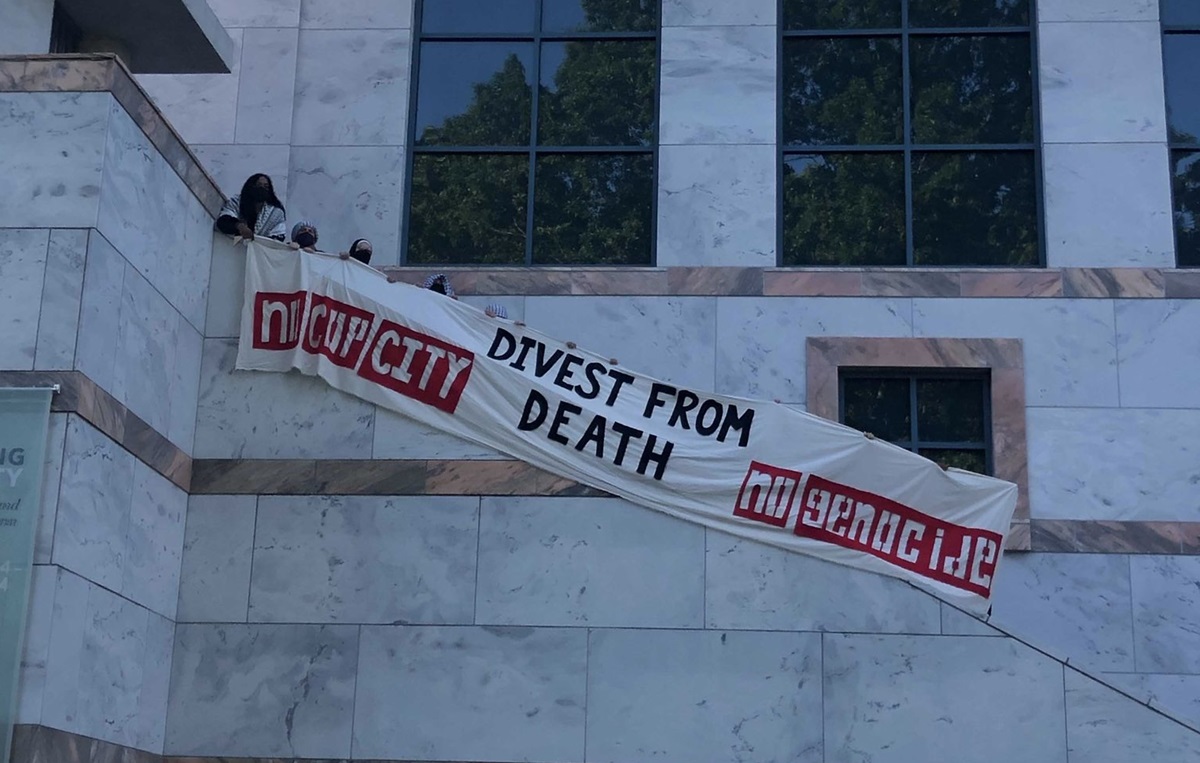Filed under: Action, Anarchist Movement, Repression, Southeast, The State

Part I: What We Know
In the past six months, over half a dozen people with personal or political ties to anarchists in central North Carolina have been approached for questioning by the FBI. This wave began in early winter after an apparent arson of the Orange County GOP office, and has recently escalated. In at least one instance, agents claimed to be investigating the arson. In other instances, they suggested that their investigation had a wider scope.
Some of the visits have targeted anarchists’ family members and partners. Questions included the political affiliations and relationships of the targets’ loved ones. This suggests that agents are attempting to map the social networks of the local movement. While this strategy may be merely incidental to a focused investigation, it could also be the prelude to a broad campaign of harassment.
The agents conducting visits have used disinformation to try to pull their targets into conversation. In one case, they claimed to be following up on an anonymous tip identifying the target as an extremist, but the details of the allegations and the pattern of their prior investigation suggest that the tip was their own invention. In another case, they fed their target a series of incomplete or incorrect names to see who the target would recognize.
The language that agents used in some visits lead us to believe that they are trying to create or exploit conflicts among their targets. This is a classic FBI tactic, used in political repression from COINTELPRO to the Green Scare. Although their efforts are often clumsy, everyone should be prepared for agents to use invasive, emotionally manipulative ploys. We should always remember that law enforcement has neither an obligation nor an incentive to tell us the whole truth, or any truth at all.
To our knowledge, none of the people questioned has shared information with the FBI.
Part II: What We Can Do
You never, ever have to talk to the FBI. Since you won’t know the true object of their inquiry, you can’t know what is dangerous to share with them. If you are approached, get the agent’s card and refuse to answer any questions without legal counsel. Do not engage them in conversation.
These events are not a reason to panic. Although the current administration considers anarchists a particular enemy and has made efforts to politicize federal law enforcement, it is possible that the recent increase of FBI activity here is just a coincidence. Rather than overreact, we should take simple steps that will reduce the impact of political repression if it intensifies, and do no harm if it does not.
For family and friends:
Sometimes the impact of repression is felt first by people unaffiliated with the movements under pressure. The FBI may come to you simply because you love someone they want to scrutinize, who may also be only distantly connected to their “real” target. You may be tempted to talk because you have nothing to hide, but if you do talk, you may later learn that your cooperation has helped them twist the justice system in ways you would never support.
Sometimes, political convictions can be a source of strain in family relationships. These feelings can intensify when you fear your child or sibling is in legal danger, or worse, that their beliefs have led them into a terrible crime. The FBI often attempts to prey on these fears whether or not a crime has been committed. Rather than assume their motives are good, seek legal counsel and alert the person they’re asking about.
For potential targets:
Stay calm. Remember your security culture basics. Don’t use social media or other electronic communication to say things you don’t want read back to you in court. Always ask yourself how a hostile, dishonest prosecutor could spin your words to build a conspiracy case, even if you know all your activities are legal. Use secure technologies when possible, but don’t let them be an excuse for lax habits.
The FBI may also put resources into other approaches, such as infiltration. Use common sense to avoid entrapment. Be thoughtful about the ways you talk with comrades who are new to your life—directly incriminating statements are not the only intelligence the state looks for when its goal is to dismantle a movement. At the same time, stay open to new energy and new perspectives. If an aggressive repression effort does begin, our relationships with wide, diverse networks of solidarity will be one of our most important assets.
If you have spoken with the FBI, do not be afraid to come forward. Your words will do less harm if they are known, and you will be less susceptible to further manipulation if they don’t have secrets they can hold over you.
For the movement at large:
Under an administration whose stated purpose is to dispossess vast swathes of vulnerable people for the benefit of its supporters, it might feel like a low priority to fight the repression of a small political group, especially when no one is in jail yet. Unfortunately, if we always wait to take action until there’s a news headline, our actions will have little effect. Anarchists elsewhere in the country are also under increasing pressure from law enforcement. If it continues, it will affect the protest movement far beyond the specific communities under attack, and it will encourage the Feds to use the same approach against other communities. Now is the time to renew old relationships, forge new ones, and think proactively about the measures you will take if political repression hits hard.
For everyone:
The FBI relies on secrecy and fear to manipulate the people they want to use. Alert others promptly if you are approached. In central North Carolina, you can email [email protected] to share information about law enforcement visits that you believe are related to political repression. Please include agents’ names and any questions they asked.
Further resources:
http://www.freedom-school.com/law/if-an-agent-knocks.html
https://itsgoingdown.org/bloc-party-when-they-knock-on-your-front-door/




